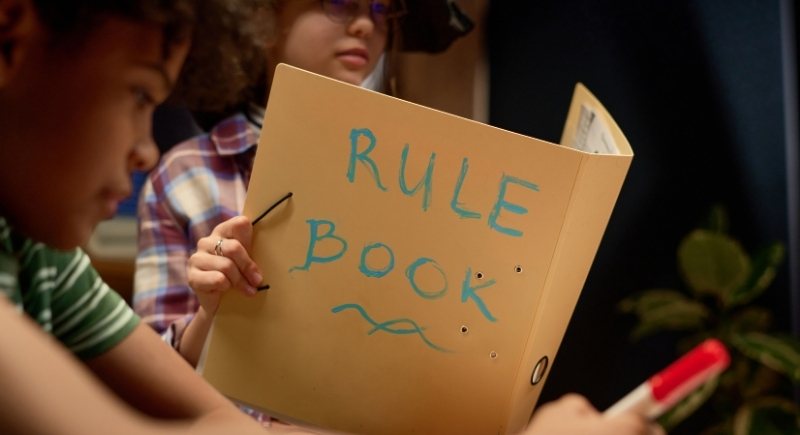15 Ways to Raise Kids Who Are Entitled and Rude
Kids don’t wake up one morning and decide to be rude or entitled. It’s a habit that can take root over time. Certain parenting choices, especially when repeated, can teach kids to expect special treatment, dodge responsibility, or avoid empathy. This article lists the most common approaches almost guaranteed to cultivate entitlement.
Hand Over Every Gadget on Demand

Credit: Getty Images
A tablet in their hands steals chances for conversation, observation, and creativity. Studies show that excessive screen time hinders social skill development in kids. The more they rely on instant entertainment, the harder it becomes to navigate moments that require patience or genuine interaction.
Remove Every Obstacle for Them

Credit: Getty Images
Arguing for better grades or rushing to replace forgotten items teaches them that someone else will always intervene. This habit weakens their ability to problem-solve under pressure and reduces confidence in facing challenges without backup.
Model Blame Over Accountability

Credit: iStockphoto
Criticizing teachers, coaches, or service staff in front of children sends a clear signal: faults belong elsewhere. Over time, they adopt the same approach and search for culprits rather than reflecting on their role in a situation. This mindset stalls growth and makes constructive feedback harder to accept.
Hand Out Cash Without Strings

Credit: Getty Images
Skip the allowance tracking and just hand over $20 when they ask. It’s easy for you, but now they think money appears like magic. Without experience in handling their own allowance or working toward purchases, they develop unrealistic expectations about instant access to funds.
Overload on Paid Opportunities

Credit: Getty Images
Pack their schedule with expensive tutors and exclusive classes, and they can start to believe every setting should cater to them. Without extra perks, they may lose interest altogether. Feedback feels like an insult instead of guidance, and they’re left unprepared for situations where the world doesn’t revolve around their preferences.
Skip Consistent Bedtimes

Credit: Getty Images
Research links poor sleep to more disruptive behavior in school-aged children. A consistent bedtime teaches that routines matter, even when they’re inconvenient, and helps kids show up to daily life with the mental and emotional energy they need.
Treat Them Like Confidants

Credit: Getty Images
Sharing job stress or money problems puts adult burdens on a child. Boundaries blur, and the relationship starts to feel less like parent and child, more like equals. They may speak with the bluntness they use with friends, losing the respect that comes from clear roles and leaving them carrying emotions they shouldn’t have to manage.
Skip Gratitude Practices

Credit: Canva
When thank-yous are skipped, appreciation becomes an afterthought. Kids who never have to express gratitude may start to assume generosity is just routine. Teaching them to acknowledge kindness helps build empathy and strengthens relationships, an asset in every area of life, from friendships to future careers.
Keep Them Out of Entry-Level Work

Credit: Getty Images
If you keep them out of summer jobs, they miss experiences that teach patience, respect, and resilience. Entry-level work shows what it’s like to follow instructions, deal with difficult customers, and work through tedious tasks. It also gives them perspective on service roles and a clearer link between hard work and earning money.
Excuse Them from Chores

Credit: Getty Images
Household tasks build a sense of contribution and teach time management. Without them, children often expect others to handle daily upkeep. Simple tasks like feeding a pet or loading the dishwasher prepare them for shared responsibilities later in life.
Reward Only Results, Not Effort

Credit: pexels
Kids raised on outcome-only praise become risk-averse and they won’t try things they might not ace. Celebrating only top scores or wins creates a narrow view of success. Recognizing persistence and progress shows them the journey matters, and not just the final scoreboard.
Let Rules Slide When It’s Convenient

Credit: Canva
Inconsistent enforcement undermines the purpose of rules. Flexible limits teach children to test boundaries until they find the weak spot. A steady approach—whether for curfews, chores, or screen time—builds respect for agreements and expectations.
React With Harsh Labels

Credit: Canva
Call them “lazy” or “rude” often enough, and it sticks. Labels can shape how kids see themselves, and they’ll start living up (or down) to the title. Critique the behavior instead, so they know they can change it.
Ignore Teachable Moments During Conflict

Credit: Canva
Focusing on winning an argument instead of guiding behavior turns disagreements into power struggles. When emotions settle, missed opportunities for calm discussion can’t be recovered. Addressing the issue with clarity after the heat has passed teaches more than a quick reprimand ever could.
Avoid Letting Them Fail

Credit: Canva
Failure is uncomfortable to watch, but it’s also an essential teacher. Shielding kids from mistakes prevents them from developing coping skills. Kids who’ve never fallen don’t know how to get back up. Failure, in small doses, is the training ground for grit.